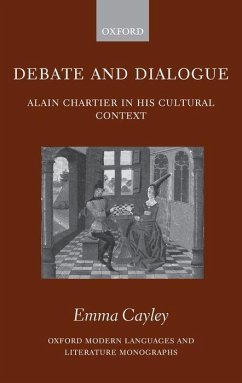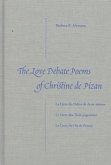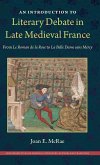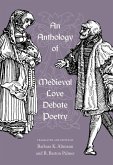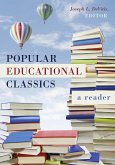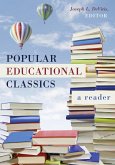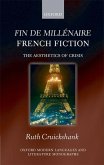In early humanist France two debating traditions converge: one literary and vernacular, one intellectual and conducted mainly via Latin epistles. Debate and Dialogue demonstrates how the two fuse in the vernacular verse debates of Alain Chartier, secretary and notary at the court of Charles VI, and later, Charles VII. In spite of considerable contemporary praise for Chartier, his work has remained largely neglected by modern critics. This study shows how Chartier participates in a movement that invests a vernacular poetic with moral and political significance, inspiring such social engagements as the fifteenth-century poetic exchange known as the Querelle de la Belle Dame sans mercy. Emma Cayley sets Chartier in the context of a late-medieval debating climate through the use of a new model of participatory poetics which she terms the collaborative debating community. This is a dynamic and generative social grouping based on Brian Stock's model of the textual community, as well as Pierre Bourdieu's sociological categories of field, habitus, and capital. This dialectical model takes account of the socio-cultural context of literary production, and suggests the fundamentally competitive yet collaborative nature of late-medieval poetry. Cayley draws an analogy here between literary debates and game-playing, engaging with the game theory of Johan Huizinga and Roger Caillois, and discusses the manuscript context of such literary debates as the materialization of this poetic game. The collaborative debating community postulated affords unique insights into the dynamics of late-medieval compositional and reading practices.
Hinweis: Dieser Artikel kann nur an eine deutsche Lieferadresse ausgeliefert werden.
Hinweis: Dieser Artikel kann nur an eine deutsche Lieferadresse ausgeliefert werden.

